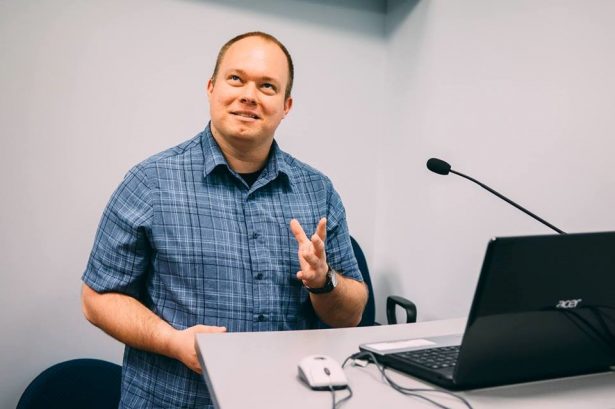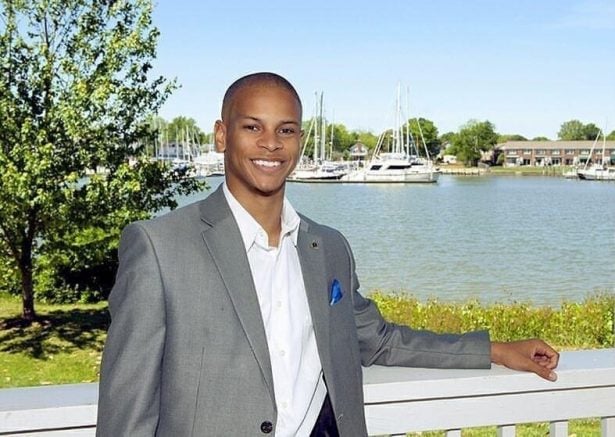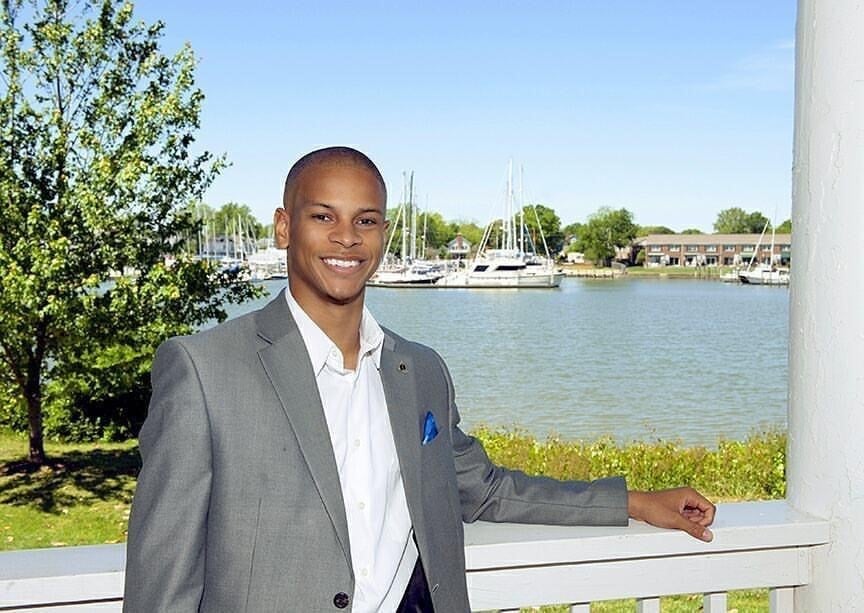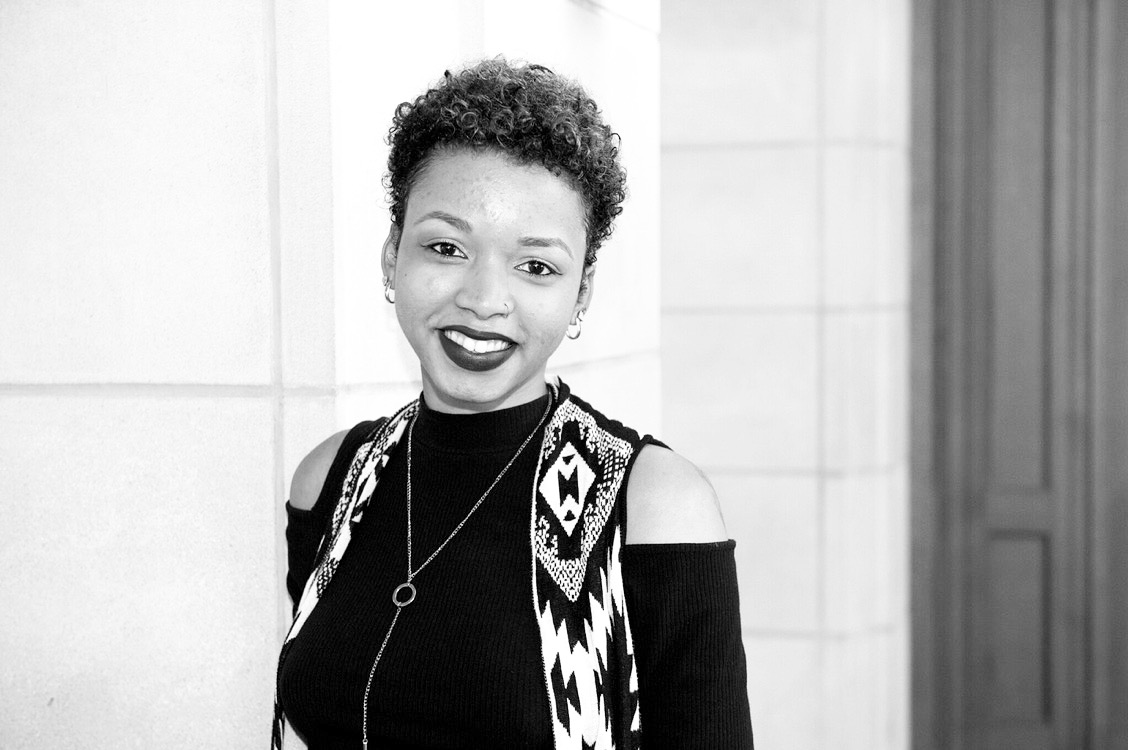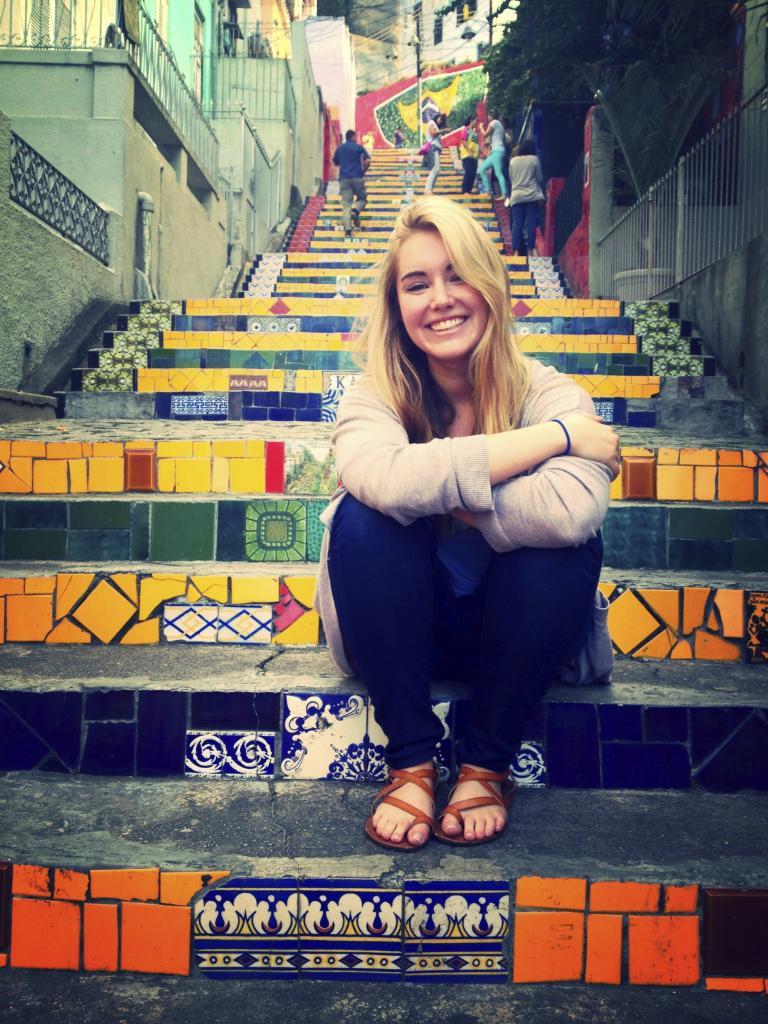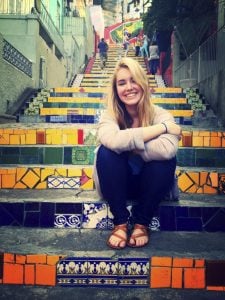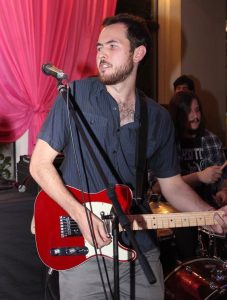
Samuel Fishman, 2017-2018, Fulbright English Teaching Assistant to Paraguay, performing at his host institution’s annual Teacher’s Day party (Photo: Martin Sanchez)
“You look like you play guitar.” I turned around and did a double take. Standing in front of me was a Paraguayan English teacher and an alumnus of a U.S. exchange program. I was in the U.S. Ambassador’s residence in Asuncion, Paraguay, at a formal reception for a visiting delegation of U.S. professors. What had given me away? Not only had I swapped my usual tattered Iron Maiden muscle tee for a shirt and tie, I’d even combed my hair for the evening. Maybe it was the Chuck Taylor’s, peeping out from beneath my wrinkled khakis.
I was one month into my Fulbright English Teaching Assistant (ETA) award in San Lorenzo, Paraguay, and I was still trying to find my footing. I was struggling to connect with one of my host institutions. It was no one’s fault, but try as I might, my English study groups and lessons weren’t connecting with a consistent audience.
Back at the Ambassador’s residence I tentatively responded yes, I do strum a few chords. As tends to happen when two musicians get to talking, a jumble of shared favorite bands began tumbling through the air. Our shared musical vocabulary took us across the globe as we bantered about classic bands, songs, and shows. Between The Beatles, Janis Joplin, Soda Stereo, AC/DC, and Mana, we covered thousands of miles in just a few minutes. Before I knew it, I was plugging in my guitar at my first rehearsal for a band composed entirely of Paraguayan English teachers. The Lost Tichers, as we would come to be known, fortunately all taught at the same host institution where I was struggling to integrate myself.


